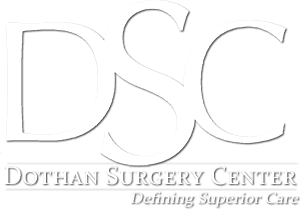Surprise Billing
Your Rights and Protections Regarding Surprise Medical Bills
When you receive emergency medical care or services from an out-of-network provider at an in-network hospital or ambulatory surgical center, you are protected from unexpected balance billing, also known as surprise billing.
What is “balance billing” or “surprise billing”?
Typically, when you visit a doctor or healthcare provider, you may be responsible for certain out-of-pocket costs, such as copayments, coinsurance, or deductibles. If you receive care from a provider or healthcare facility that is outside your health plan’s network (out-of-network), you may incur additional costs or even be responsible for the entire bill.
Providers and facilities that are “out-of-network” have not contracted with your health plan. They can sometimes charge you the difference between what your insurance plan covers, and the total amount billed for a service. This practice is known as “balance billing” and can result in significantly higher costs compared to network charges. These additional charges may not count toward your annual out-of-pocket maximum.
“Surprise billing” occurs when you unexpectedly receive a balance bill. This commonly happens when you cannot choose who provides your care, such as during an emergency or when you visit an in-network facility but receive treatment from an out-of-network provider.
Protections Against Balance Billing:
Emergency Services: If you require emergency medical attention and receive care from an out-of-network provider or facility, you cannot be charged more than your health plan’s in-network cost-sharing amounts, such as copayments or coinsurance. Balance billing is prohibited for these emergency services, including those received after you have reached a stable condition, unless you provide written consent to waive these protections.
Specific Services at In-Network Hospitals or Ambulatory Surgical Centers: Some providers at in-network hospitals or ambulatory surgical centers may be out-of-network. For services such as emergency medicine, anesthesiology, pathology, radiology, laboratory, neonatology, assistant surgery, hospitalist care, or intensivist care, the maximum amount these providers can bill you is limited to your plan’s in-network cost-sharing amounts. They are not allowed to balance bill you or ask you to waive your balance billing protections.
For other services at these facilities, you cannot be balance billed unless you explicitly consent in writing to waive your protections.
You are never obligated to waive your protections from balance billing and are not required to seek care from out-of-network providers. You have the right to choose in-network providers and facilities.
Additional Protections When Balance Billing is Prohibited:
- You are only required to pay your standard cost-sharing amount (copayments, coinsurance, and deductibles), as if you received care from an in-network provider or facility. Your health plan must directly compensate out-of-network providers.
- Your health plan typically must:
- Cover emergency services without requiring prior authorization.
- Cover emergency services provided by out-of-network providers.
- Calculate your cost-sharing responsibility based on the amount it would pay an in-network provider and clearly outline this in your Explanation of Benefits.
- Apply any amounts you pay for emergency or out-of-network services toward your deductible and annual out-of-pocket limit.
If you believe you have been wrongly billed, you may contact:
- The Department of Health and Human Services at 1-800-985-3059
- Office of the Attorney General, State of Alabama at 1-800-392-5658
For further information about your federal rights, visit: https://www.cms.gov/nosurprises For additional details regarding your state rights, visit: https://www.alabamaag.gov/ConsumerComplaint
